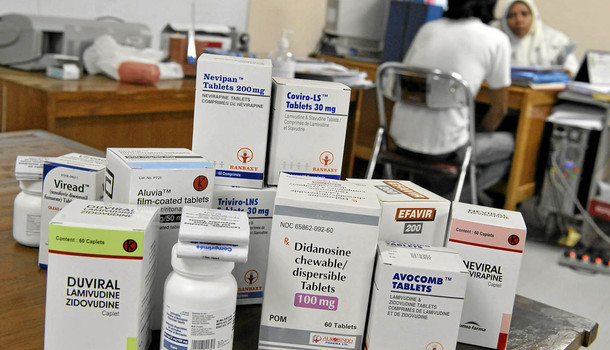Government sources essential ARV drugs

Thandeka Moyo, Health Reporter
The Government has sourced 175 000 packets of an essential Anti-Retroviral (ARV) drug to avert countrywide shortages that had put thousands at the risk of defaulting on HIV medication.
Ministry of Health and Child Care recently announced Atazanavir/ritonavir, a tablet used in the second line antiretroviral treatment was in short supply due to reduced global production caused by Covid-19.
The drug was temporarily replaced by Dolutegravir (DTG) 50g as the optional drug Lopinvir/ritonavir is also in short supply due to Covid-19 which has affected production and shipment of medicines.
In 2016 the Ministry of Health and Child Care launched the new ART national guidelines which recommended the use of Atazanavir/ritonavir 300mg/100mg to adolescents and adults on second line ART.
An HIV drug regimen has three line and about 1, 3 million Zimbabweans are living with HIV and in need of treatment.
The first is taken by most patients, especially those who seek treatment early after infection while the second is more expensive, more toxic with more side-effects and is given to people who are resistant to the first.
The third line is the most expensive and most toxic.
According to the Ministry, the first batch of the ARV is expected by the end of today.
“The Ministry of Health has managed to secure 175 000 packs of ATV/r tablets used in 2nd line ART treatment with the help from the World Health Organisation.
The first batch of 60 000 is expected in the country by 14th of July and the remainder will be ready by end of July,” read a statement from the Ministry.
The National Aids Council chief executive officer Dr Bernard Madzima confirmed the development yesterday saying Covid-19 had also affected the country’s aim to reach 2020 Aids 90-90-90 goals.
“I can confirm that through global fund we have managed to secure some ARV supplies which are coming into the country. They will go a long way in helping us to ensure our clients have access to treatment,” said Dr Madzima.
“However, this is not all that we would have wanted but the packets will definitely fill in the gap which we are experiencing. These are global shortages starting from the manufacturers, airlines and shipping companies so the problem is not peculiar to Zimbabwe and we hope that this consignment will go a long way in addressing the shortages.”
Dr Madzima said Nac would continue ensuring that individuals get reduced supply of drugs due to shortages.
“We will continue giving people one month’s supply instead of three so that we cover everyone,” he said.
Dr Madzima said the country had almost reached the first 2020 global goal of ensuring that 90 percent of the total population are aware of their HIV status.
“The first 90 we are almost there but Covid-19 may present a challenge as it has slowed down some of our progress towards the goals. Zimbabwe has about 1,3 million people living with HIV and approximately 88 percent of those are on antiretrovirals,” said Dr Madzima.
Hard hit countries like Zimbabwe had aimed to ensure that by 2020, 90 percent of were aware of HIV status, 90 percent of those infected are receiving AARV and that 90 percent of those on treatment achieve viral load suppression.
@thamamoe







Comments